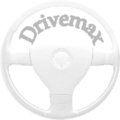Our Services

Theory
Theoretical knowledge plays a crucial role in learning how to drive safely and responsibly. Understanding the rules of the road, traffic signs, and regulations is essential for drivers to navigate effectively and avoid accidents. Theoretical knowledge also helps drivers anticipate and respond to different situations, such as adverse weather conditions or emergencies. Additionally, having a strong theoretical foundation can enhance a driver's confidence behind the wheel, leading to a smoother and more enjoyable driving experience. Overall, theoretical knowledge is a key component of driver education in Canada, contributing to safer roads for everyone.

In-car Lessons
In-car lessons are highly important for learning to drive in Canada, providing invaluable hands-on experience that complements theoretical knowledge. These lessons offer practical training in real-world driving scenarios, helping new drivers develop essential skills such as steering, braking, and maneuvering safely. Instructors can also provide immediate feedback and guidance, helping learners correct mistakes and build confidence. In-car lessons are particularly crucial in Canada due to its diverse driving conditions, including challenging weather like snow and ice. Through in-car lessons, drivers learn how to navigate these conditions safely, preparing them to handle the varied and often unpredictable road conditions across the country.

Drive Test
The road test is a critical step in learning to drive in Canada, as it assesses a driver's ability to safely operate a vehicle in real-world conditions. It is a practical demonstration of the skills and knowledge acquired during driver education, including understanding traffic rules, using signals correctly, and reacting appropriately to various situations. Passing the road test demonstrates that a driver has the necessary skills to drive safely and responsibly, reducing the risk of accidents on the road. Moreover, the road test helps ensure that drivers are aware of and adhere to Canadian road laws and regulations, contributing to safer roads for all users.
G1, G2 and G.
In Canada, the graduated driver licensing (GDL) system is designed to ensure that new drivers gain the skills and experience needed to safely operate a vehicle. The system typically consists of three levels: G1, G2, and G. Each level has specific requirements and restrictions, with the aim of gradually increasing a driver's skill and confidence before granting them full driving privileges. G1 (Learner's Permit): This is the first stage of the GDL system. To obtain a G1 license, individuals must pass a written test on the rules of the road. G1 drivers can only drive under the supervision of a fully licensed driver with a few years of driving experience. There are also restrictions on the number of passengers allowed in the vehicle and a zero tolerance policy for alcohol. G2 (Probationary License): The G2 level is the second stage of the GDL system. To get a G2 license, drivers must pass a road test that assesses their driving skills. G2 drivers have more privileges than G1 drivers, such as being able to drive without a fully licensed driver in the car, but there are still restrictions, such as a zero tolerance policy for alcohol. G (Full License): The G level is the final stage of the GDL system. To obtain a full G license, drivers must pass another road test that evaluates their driving skills. G drivers have no restrictions on their driving privileges, although they must still adhere to all traffic laws and regulations. The purpose of these graduated levels is to ensure that new drivers gain experience in a controlled manner, reducing the risk of accidents and improving overall road safety. By gradually increasing the complexity of driving tasks and responsibilities, the GDL system helps new drivers become more confident and skilled behind the wheel before granting them full driving privileges.
QUESTIONS?
Whether you’re curious about features, a free trial, or even press, we’re here to answer any questions.
